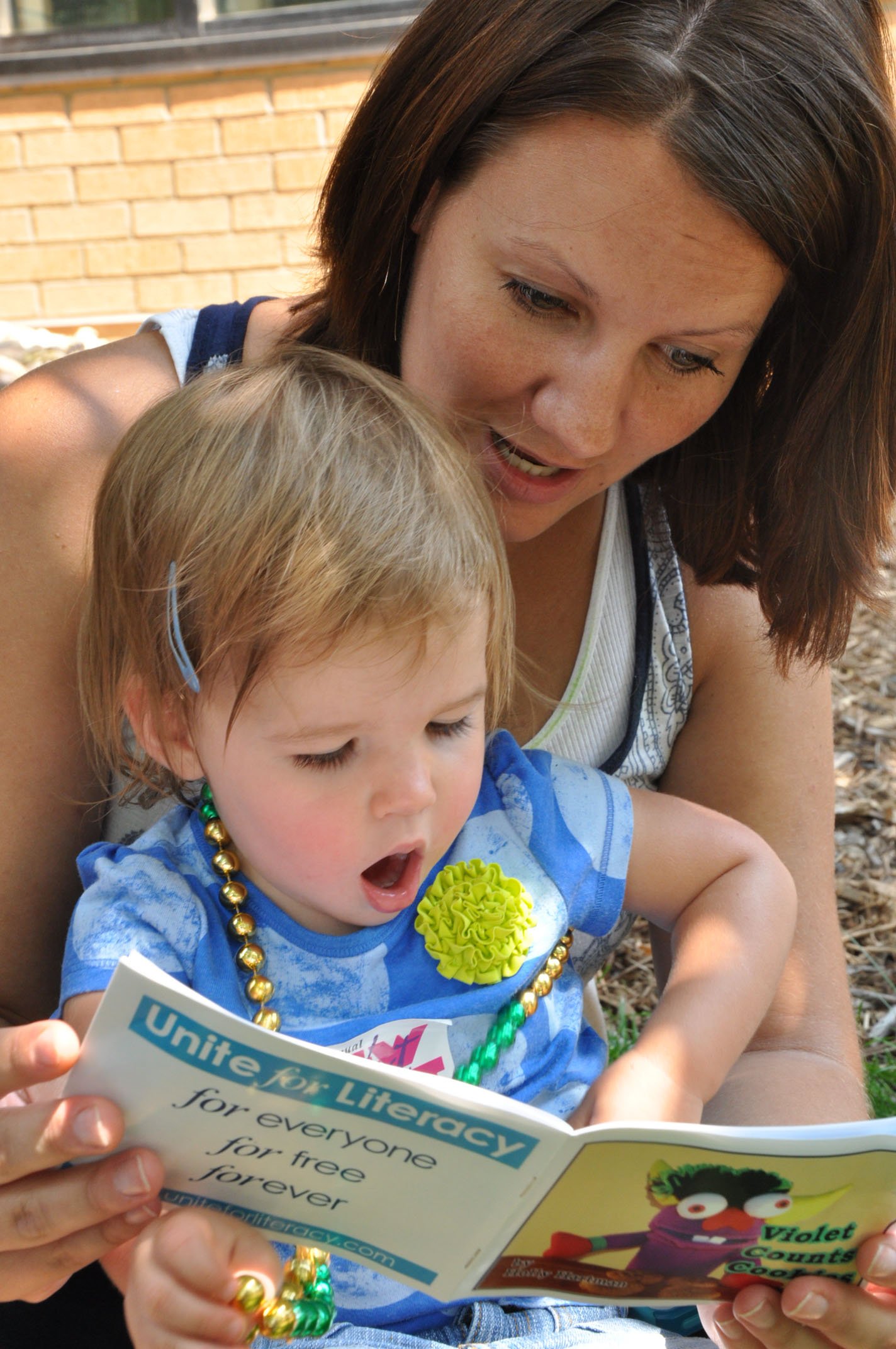Add More Lap Time to Your Days
By Mark W.F. Condon, Unite for Literacy vice president
For children, especially very young children, lap-time literacy experiences offer powerful positive contributions to their social-emotional development. Conversely, the language and informational richness of books don’t benefit a child unless books are opened, explored, read and discussed. It’s even better when done with one of a child’s beloved caregivers.
Such sharing positions books as contributions to a child’s sense of self in the context of the family. And reading books about people and places beyond their neighborhoods expands children’s understandings of the world. Books enable readers to experience the daily lives of others, real and imagined, helping them to develop insights into life beyond their doorsteps. All of this results in children increasing the depth and strength of their language mastery.
Let’s be clear on how critical social-emotional development is. Accepting and understanding one’s own emotional responses to life’s complexities and developing a solid sense of self can serve as the platform for understanding the range of possible human relationships. A child who has trusted family, friends and neighbors may receive blessings from each for emotional health. Sometimes, however, those blessings are culturally and geographically narrow, and serve as walls. Those limitations diminish as children’s lives expand to include diverse social and emotional experiences in school, faith communities and their ever-growing personal networks.
What children don’t receive from their upbringing they can begin to learn through books. Books and reading offer safe places to explore the emotional strengths and weaknesses of the range of individuals in children’s complex worlds. Books can provide children ways to observe how others accept their own emotions, embrace their own feelings, and turn them into tools for deeper learning and clearer communication.
Early literacy experiences–interactions with books and explorations about what their authors mean to convey about being human, can contribute exponentially to a child’s sense of comfort with making new friends. Trudy Ludwig’s The Invisible Boy is a heartfelt story about Kevin, a quiet child, who struggles to fit in. This sensitive tale makes clear the impact of Kevin’s rejection by other children. It also celebrates the sweet ways he reaches out to welcome and make friends with Justin, a new classmate. The illustrations capture emotions perfectly, providing supportive ways for young children to make sense of tender stories such as this. In this same way, books also help kids understand other families, and appreciate others’ unique challenges and triumphs.
Every verbal interaction has the potential to strengthen and enrich children’s command of their language(s). However, the irreplaceable impact of books and other forms of carefully composed print communication capture sophisticated and subtle language in a physical, enduring form, allowing each learner’s on-demand re-reading. Soon, the complex sentence structure woven into the books they encounter becomes an effortless and natural addition to children’s own language. It may be argued therefore, that absolutely nothing can replace the depth and breadth of language and educational contributions of good books and literacy experiences when they are shared and discussed among adults, children, and even toddlers.
All of this starts with little ones sitting in the laps of trusted loved ones, reading and discussing books that children love. Those joyful and loving explorations, conversations that help kids step inside a story, or consider new ideas, can lead to the kind of eye-opening discoveries that can inspire each child’s enduring relationship with books and reading.
